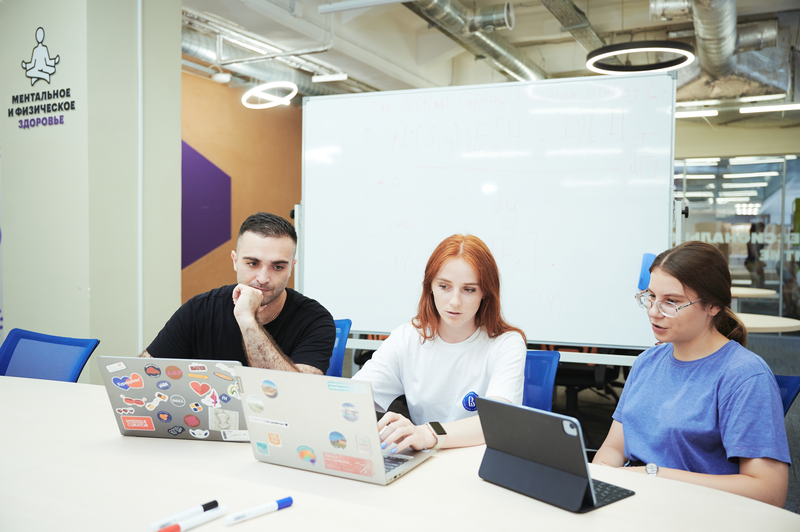‘In the Future, I Expect Rapid Development of Professions Related to Prompt Engineering’

The English-language programme of HSE Online ‘Master of Computer Vision’ will change its name to ‘Artificial Intelligence and Computer Vision’ in 2024. Andrey Savchenko, the programme academic supervisor, shares how the new name will affect the programme semantics, why AI has become the main federal trend in the field of information technology, and what tasks graduates will solve.

Andrey Savchenko
— Why does the programme new title focus on artificial intelligence? Are you expanding the range of disciplines?
— While discussing the programme’s relevance, I used to draw attention to the fact that computer vision methods are currently used not only for image and video analysis, but also for many other artificial intelligence tasks. But even I was pleasantly surprised that more than half of our graduates chose AI tasks as their thesis topics. Formally, they are not included in the field of computer vision, but use models that first appeared in image processing. For example, our graduates classified and generated ECG signals and even applied reinforcement learning to trading with a description of the current stock market situation using images. Moreover, one student, together with his supervisor, prepared a scientific article, which he recently presented at an international conference in Croatia.
Taking into account this trend, we decided to change the name and slightly expand our basic training in the field of AI, including programming in C++ and Python, machine learning, and deep learning. As a result, the programme will be intended for a wider range of people interested in AI.
— Why has the government made AI responsible for the prosperity of the digital economy?
— Artificial intelligence has been developing for a long time through the efforts of researchers and scientists at universities. For 70 years, they’ve been developing new methods, neural network models and learning algorithms. Periodically, there have been results that led to bursts of interest in AI from business and the state, but then, when it was not possible to obtain the expected quality of problem solving, interest decreased. Everything changed about 10 years ago, when, as part of an image recognition competition, a group of researchers from Toronto trained a deep convolutional neural network and improved the results of other participants in the competition by 10%, including large companies. These companies turned out to be quite flexible, quickly realizing the prospects of new technologies and creating their own research units, which led to the results that we can observe now.
Governments usually do not adapt so quickly when it comes to supporting the creation of new developments and financing programmes, and the introduction of new technologies.
In Russia, the federal AI development project was signed at the end of 2019, and from the end of 2021, the first six AI centers were established (including the centre at HSE University)
Speaking about some special responsibilities for the prosperity of the digital economy, everything is simple: AI technologies have already reached the level of development that enables them to be used in a variety of tasks in their current form, for example, to automate defect control based on video surveillance data, analyse traffic situations, structure and summarise documents. Researchers are still focusing on creating new methods and technologies that can further improve the quality of solutions or even start completely new tasks for which the current capabilities of AI are insufficient.
— The evolution of AI and computer vision is happening rapidly. What educational tools help the programme meet these ever-changing trends?
—We invite industry experts to conduct live webinars on the most important topics. But the most important thing is that we believe it is necessary to train specialists who not only know how to work with technologies relevant at the time of studying for a master's degree, but can also adapt to new trends; essentially, we teach them to study.
The Master of Computer Vision programme was developed by scientists from HSE University and leading experts from Huawei, SBER Lab, Intel, AIRI, Xperience.ai who are all involved in advanced research in the field of computer vision. Graduates of the programme can go on to positions such as computer vision software engineer, perception engineer, 3D perception / computer vision algorithm engineer, computer vision testing engineer, computer vision scientist, data scientist, and machine learning engineer.
The topics of term and thesis papers are compiled annually by specialists with extensive experience in scientific research and / or solving applied problems, so these topics are always relevant. Our academic supervisors always strive to turn the thesis papers into scientific articles (the first graduates eventually published two papers), so we try to pay special attention to the uniqueness of the implemented solutions.
— Which professions are the most in demand? Which specialists will appear soon?
— In the future, I expect the rapid development of professions related to prompt engineering. Their representatives are able to competently use large language models or neural networks to generate images and videos. In addition, I notice the emergence of demand for specialists from specific subject areas (medicine, industry, radio electronics, etc.) who will be able to apply AI, machine learning with an understanding of what is important in a particular field.
— How can a non-IT specialist pursue a career in the AI industry?
— Large models need to be trained on high-quality data, and specialists in different fields are working on it. AI is used to write text, music, and pictures in the aforementioned prompt engineering. AI technologies have reached the level when almost any specialist in a particular domain can use them to solve their tasks. Of course, this is only true if they are open to learning new things and are not afraid of the emerging difficulties.

